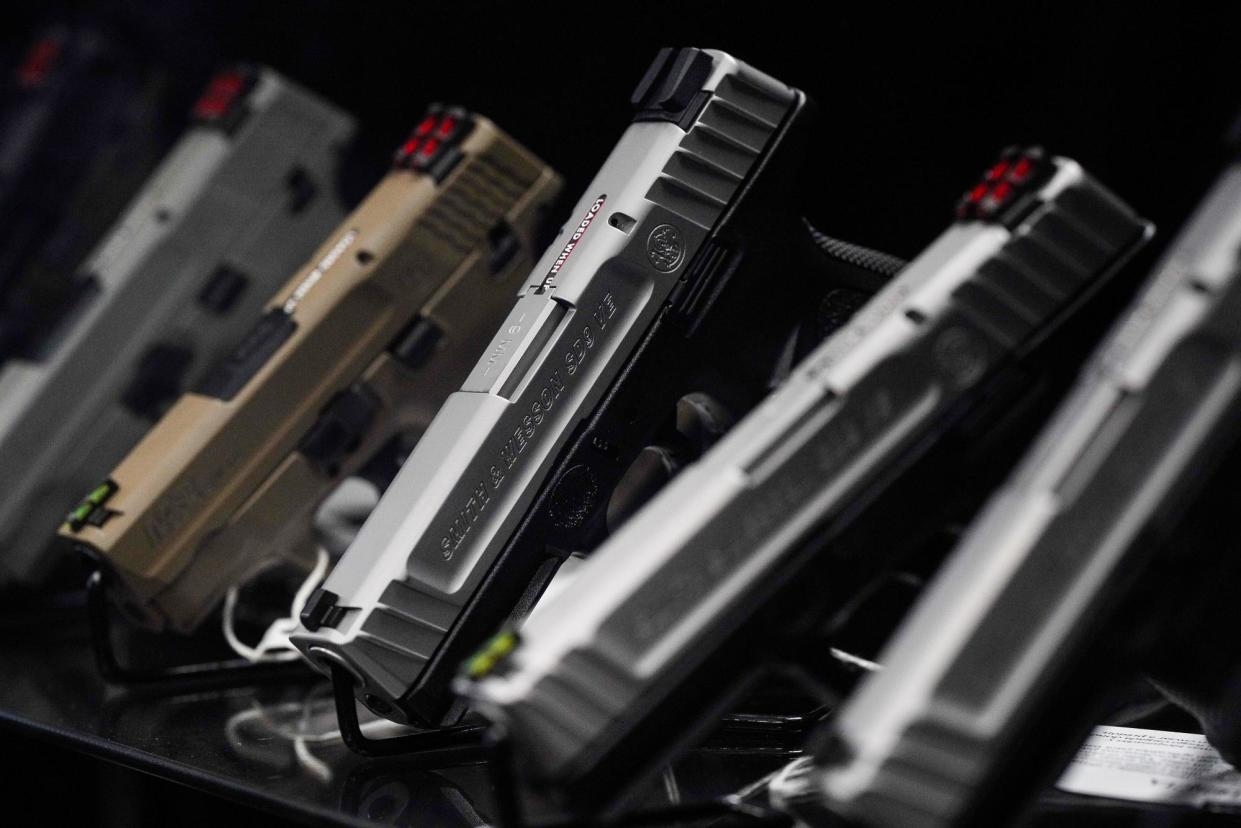Hawaii rules against public carrying of guns without permit, citing ‘aloha spirit’

Hawaii’s highest court, citing the state’s “spirit of aloha”, has ruled that a person can be prosecuted for carrying a gun in public without a permit, in an apparent rebuke to the US supreme court that has been looking favorably on efforts to expand gun rights.
The state supreme court of Hawaii reviewed a 2017 case against Christopher Wilson, who had an unregistered, loaded pistol in his front waistband when police were called after a Maui landowner reported seeing a group of men on his property at night.
Related: US supreme court refuses to overturn Illinois assault weapons ban
The court denied the man’s request to dismiss weapons possession charges on grounds that they violated a right to bear arms enshrined in the US constitution in 1791, Fox News reported.
“As the world turns, it makes no sense for contemporary society to pledge allegiance to the founding era’s culture, realities, laws, and understanding of the Constitution,” the 53-page ruling said before borrowing a phrase from the hit HBO series The Wire, set in the crime-ridden streets of Baltimore.
“The thing about the old days, they the old days,” the court added in its decision, for emphasis that contemporary culture shouldn’t be shaped entirely by the founding fathers of the US.
“The spirit of aloha clashes with a federally-mandated lifestyle that lets citizens walk around with deadly weapons during day-to-day activities,” added Justice Todd Eddins in an opinion. “The history of the Hawaiian Islands does not include a society where armed people move about the community to possibly combat the deadly aims of others.”
Under 1986’s Hawaiian Spirit Law, the state mandates that state officials and judges treat the public with “aloha spirit”, described as the coordination of the heart and mind to foster connectivity and peace that calls for contemplation and presence of five life-force traits: “akahai” (kindness, expressed with tenderness); “lōkahi” (unity, expressed with harmony); “oluʻolu” (agreeableness, expressed with pleasantness); “haʻahaʻa” (humility, expressed with modesty); and “ahonui’” (patience, expressed with perseverance).
The Wilson case has been winding its way through the court system, with the plaintiff claiming that he had legally purchased the weapon in Florida in 2013. But Wilson had not registered the gun in Hawaii, which has some of the nation’s strictest gun laws, and had not obtained or applied for a permit.
The case made its way to the state’s supreme court after the US supreme court further relaxed restrictions on gun ownership via the New York State Rifle & Pistol Association v Bruen case in 2022.
The ruling in State of Hawaii v Christopher Wilson does not throw out the concept of the right to bear firearms but rather establishes that states may retain the authority to require people to obtain a permit for their firearm before they may carry it in public.
After the ruling, Hawaii attorney general Anne Lopez said it was a landmark decision “that affirms the constitutionality of crucial gun-safety legislation” and that “commonsense tools like licensing and registration have an important role to play in addressing that problem”.
But Ben Lowenthal, an attorney for Wilson, said they may now seek a review from the federal appeals court.
Alan Beck, an attorney not involved in the Wilson case, told the Associated Press that the ruling reflects a “culture in Hawaii that’s very resistant to change”. “The use of pop culture references to attempt to rebuke the supreme court’s detailed historical analysis is evidence this is not a well-reasoned opinion,” he added.
But Eddins noted that Hawaii’s gun regulations date back to the 1800s, when Hawaii was a kingdom and King Kamehameha III had “promulgated a law prohibiting ‘any person or persons’ on shore from possessing a weapon, including any ‘knife, sword-cane, or any other dangerous weapon’”.
“We believe it is a misplaced view to think that today’s public safety laws must look like laws passed long ago,” Eddins added. “Smoothbore, muzzle-loaded, and powder-and-ramrod muskets were not exactly useful to colonial-era mass murderers. And life is a bit different now, in a nation with a lot more people, stretching to islands in the Pacific Ocean.”

